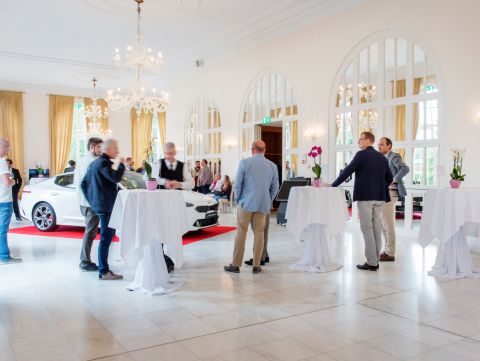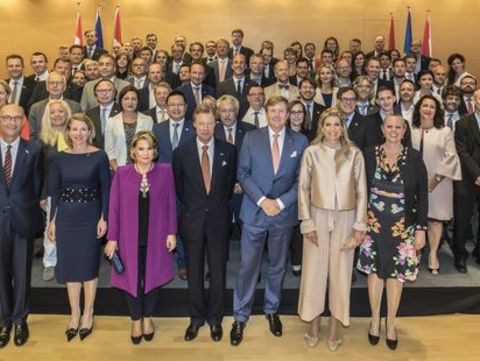The Need for Disruption in the Association and Events Landscape
The Covid pandemic has obviously been a major disruptor for the events industry, but it’s giving a much-needed wake-up call to associations and the industry as a whole, according to innovator and futurist Marc Mekki.
Mr Mekki, who is CEO of the digital innovation agency Bond, spoke from a distance at the European Convention Center Luxembourg during the 59th ICCA Congress 2020, which took place from 1-3 November. Luxembourg served as regional co-host for this important gathering of professionals from the international business events sector.
The current situation is a vital catalyst for change, Mr Mekki explained to Remi Deve, Chief Editor of Boardroom magazine, who digitally led the ‘Boardroom Expert Session: Bridge over Troubled Water’. Covid won’t be the last nor the greatest disruptor of travel and events, so the industry needs to adopt flexible business models that can ‘bend and sway’.
Back to the Basics: The Role of Community
The key to the future is to look at the past, Mr Mekki says. Long before global travel, people relied on steady engagement and the exchange of skills and ideas from small, tightly knit communities. We need to go back to this idea, he says, which is especially important for international associations whose members are spread all over the globe.
Most associations still cling to the notion of the annual event as the glue that holds a community together, but this is no longer viable, Mr Mekki says. It’s akin to a yearly sugar rush. Engagement spikes during this time, but people go home, and engagement plummets: a phenomenon Mr Deve aptly described as the ‘glycemic index of events’.
‘You don’t build a community around events, you build events around a community’, Mr Mekki said. We must think about engaging the community and keeping its attention during those 360 days when there is no event going on.
Turning Community into Engagement
Mr Mekki went on to talk about the perceived difficulty of doing this, especially as Netflix, Facebook, and a host of other tech companies expertly vie for attention as well. Many of these tech firms ‘know more about your association delegates than you do’, he added. Still, rather than feel threatened, we should look to these companies for inspiration. One such useful idea is the subscription model, he says, citing Netflix, which has displaced traditional cinema and DVDs. For Mr Mekki, the key to its success is that it provides reliable value, consistently released.
He admits that this might sound like an uphill battle, sparring with Big Tech and a host of other distractions, but associations are ideally positioned because their communities already exist, and it’s quite clear what members want and expect. The key is to build on the feeling of togetherness to create sustained engagement. To this end, associations have many options. They can build an educational platform, offer weekly workshops, or incentivise members to create their own content. By increasing engagement, associations also attract sponsors because ‘engagement is music to sponsors’ ears’, Mr Mekki says. A good first step could be more effective segmentation, for example, sending smaller, targeted nuggets of knowledge to smaller groups, rather than sending long newsletters to everyone on a mailing list.
For Mr Mekki, the ability to adapt and, in a way, revert to the old model of a small, tightly knit community is an existential matter for many organisations on which the events industry relies. ‘In the future, you won’t need to worry about how your competitors might disrupt your business, because you’ll disrupt yourself’, he says optimistically.
Key Points
- The pandemic has shown that associations need to reimagine themselves in order to better weather major disruptions.
- A community needs more than periodic events to remain strong and cohesive.
- Associations can look to companies like Netflix as a model for how to sustain interest and promote organic engagement.





